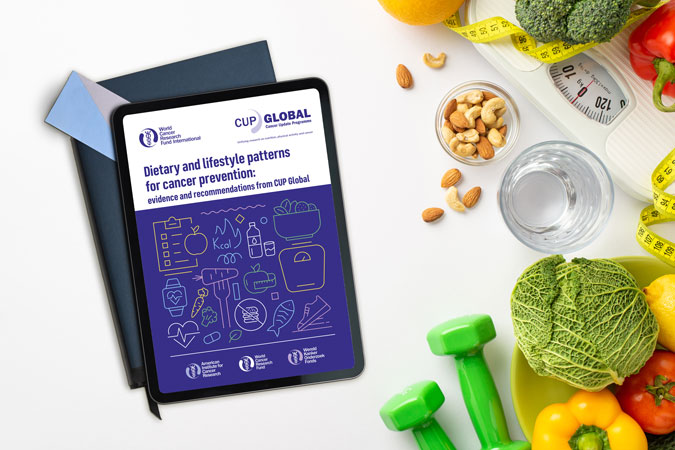There is a lack of good quality evidence on the role of diet, nutrition and physical activity in clinical outcomes of cancer survivors. With WCRF’s support, we can investigate whether adhering to the Cancer Prevention Recommendations has a beneficial impact on risk of recurrence and quality of life in patients diagnosed with bladder cancer
– Dr Alina Vrieling
Background
Patients diagnosed with non-muscle invasive bladder cancer (NMIBC) have a more than 30% risk of tumour recurrence. After diagnosis, they are subjected to a burdensome treatment and follow-up program which may have a great impact on their quality of life. Many patients with NMIBC ask their urologists whether making healthy lifestyle changes can reduce their risk of recurrence and improve their quality of life.
Aims
Investigate whether patients with NMIBC who better adhere to the WCRF/AICR cancer prevention recommendations have a reduced risk of recurrence and progression and a better quality of life than those with a worse adherence to these recommendations.
How it was done
Data from a Dutch prospective multicenter cohort will be used. 1076 participants with non muscle invasive bladder cancer were included in this study. Dietary and other lifestyle habits were assessed at baseline (reflecting their prediagnosis period), 3 months and 15 months post diagnosis. Statistical analysis were conducted on the information collected on adherence to the recommendations and quality of life with risk of recurrence.
Findings
Patients with better adherence to the WCRF/AICR cancer prevention recommendations 3 months after NMIBC diagnosis, but not before diagnosis, have a decreased risk of first bladder cancer recurrence. Following the WCRF/AICR recommendations may also improve quality of life in patients with NMIBC, but the observed effects were generally small.
Impact
In May 2021, the CALIPER UK Study workshop was organised to guide implementation of the standardised 2018 WCRF/AICR score within the CALIPER UK Study. Postdoc Moniek van Zutphen was invited to share her experiences with implementation of the standardised 2018 WCRF/AICR score in two Dutch cohorts of cancer patients. Also after the workshop, Moniek could provide additional support by answering remaining questions how to deal with specific aspects of the score. This workshop has maximised comparability of the WCRF score between several studies.
Grant publications
- Zutphen, M., Hof, J.P., Aben, K.K.H. et al. Adherence to lifestyle recommendations after non-muscle invasive bladder cancer diagnosis and risk of recurrence. The American Journal of Clinical Nutrition (2023)
- Vidra, N., Beeren, I., Zutphen, M. et al. Longitudinal associations of adherence to lifestyle recommendations and health-related quality of life in patients with non-muscle invasive bladder cancer. International Journal of Cancer (2023)



